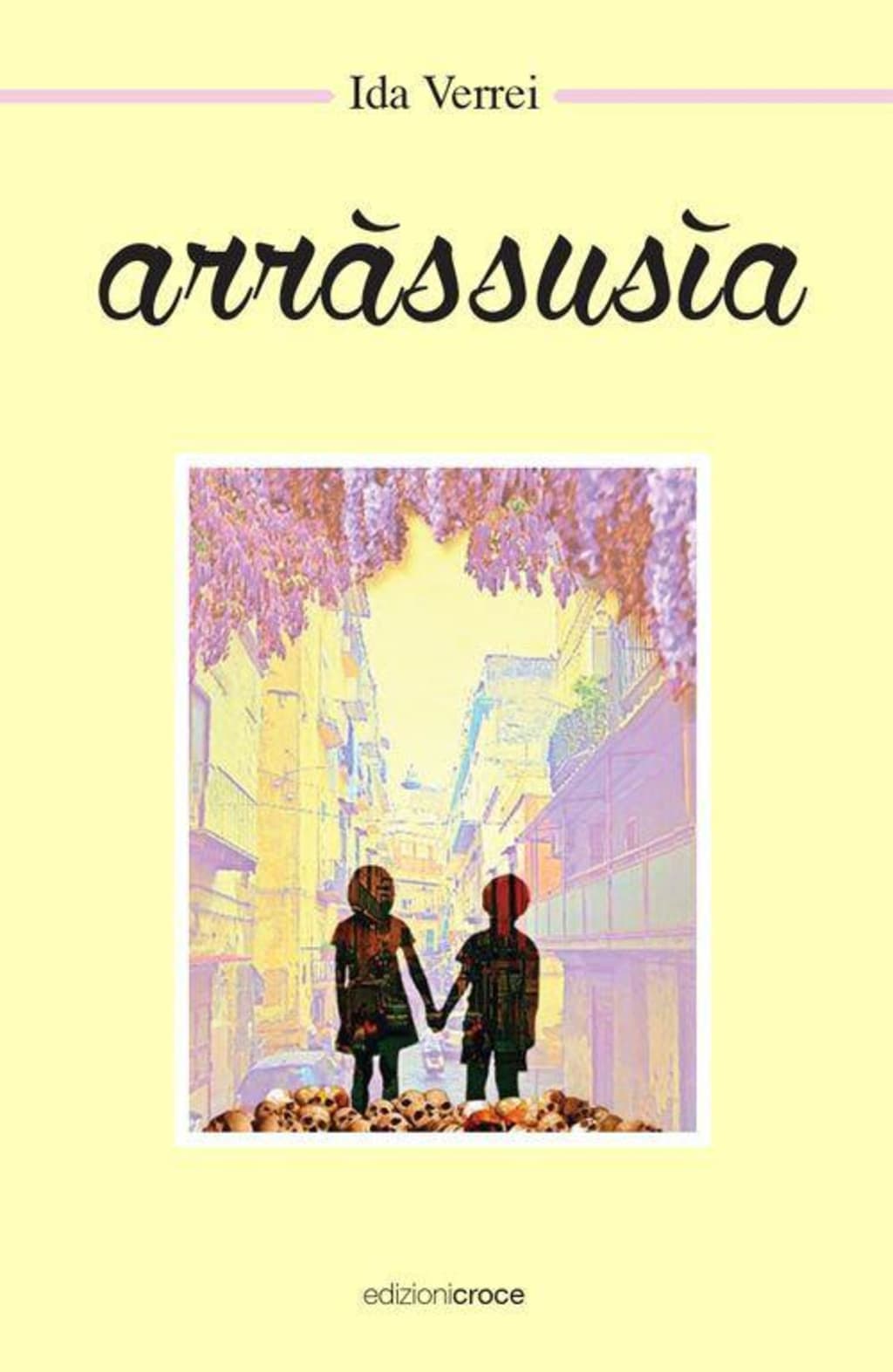Ida Verrei, "Arràssussìa"
A novel set in Naples

“She is still with us, Santino. In the scents and voices of your ancient alley, in the cracks in the tuff walls of your home, in the song of the surf on the rocks of Mergellina, in the color of the forgotten wisteria. In the laughter of children, who are not hers. “
If Naples today has a singer, it is Ida Verrei, an author who identifies with her city, indeed, she is her city.
It is not the Naples of Gomorrah, hers, but not even that of the postcards illustrated with pine, Vesuvius and Pulcinella, it is an underground city, a cemetery one, dug into the tuff. It is a city that, even on the surface, retains the same mystery, the same arcane connection between life and death. If anything, it is the Naples of the Sanità district of Antonio De Curtis, and, above all, of “These ghosts” by Eduardo de Filippo, made up of beautiful and crumbling palaces, of fallen nobility, of colleges, of arcades, of marvelous staircases by the architect Sanfelice, with discolored wallpapers, stuccoes, refined, dusty and blasè bookshops, frequented by old literary glories. Even of the people, however, of lowlands overlooking streets that constitute an apart ecosystem, a culture within a culture. A Naples that existed before and will also be after Scampia and Gomorrah, because it is made up of roots, blood, cultural archetypes, “nourishment, ‘o sanghe, Manù, blood.”
The connection between life and death is the guiding thread of the book. Death does not scare the Neapolitans, on the contrary, it has a consoling function. As happens for Maruzzella, the co-star, and her visits to the Fontanelle cemetery, an incredible place, an extraordinary tuff quarry with its stacks of skulls victims of the plague, object of devotion and care by the citizens of yesterday and today. As also happens for Manù and his friendship with the ghost of little Oreste, who appears in moments of transition, transformation, loss, ready to comfort and hearten.
The protagonist is Vittorio Emanuele, called Manù, a boy from the seventies. But history remains on the sidelines, the student protests are experienced by the young man with a sort of grumpy isolation. It is useless to look for a proletarian and problematic Naples in the text, it would be an ideological forcing. Rather, Manù belongs to an ahistorical Naples, accepted as it is without judgment and without reservations, made not of events but of emotions: the fear of detachment and loss, filial love, friendship, forgiveness, passion, the disturbances of the heart and body.
Another theme is nostalgia. Time runs away, rolls away, we also understand it from the temporal changes given in the chapters, it transforms us until we turn back and realize how much life has passed, how things have changed without even realizing it. The past appears full of charm and we would give everything to go back. This is what happens to Manù when he thinks back of life in boarding school, hard, difficult, but still connected to youth, to everything that he cannot get back.
“Many projects of the past had suddenly lost their charm. Their place seemed to have been taken by the desire for time to stop, not to run too fast, by the fear that something might be lost, without him having had time to savor its taste to the full“
Verrei’s is a connoted, poetic style that indulges in adjectives, that is not afraid of feelings and beauty, that unites words and things, high and low, sublime and plebeian. There is a noble use of the Neapolitan language.
“Arràssusìa is a beautiful Neapolitan word for assaje, it means” far be “,” never may “or even” if ever “. And it has ancient origins. You see, Manù, dialects are the history of peoples, their past, we must never forget them. And ours, in particular, has all the good and evil of the Neapolitan land inside. The art of making do, for example, or the need to save. Since we are all puverielle, all poor, we “facimme economy” as well and “‘nu scioscio”, even by a whisker. A single word is enough for us to tell a world, and a letter, a vowel has the vigor of a prayer. Learn the Italian language well, yes sir, “guagliò, ma pienza e suonna c’o napulitano”, but think and dream in Neapolitan “.
A book full of charm and atmosphere, which has an ancient flavor, which reconciles you with reading and allows you to rediscover that rare and almost forgotten taste of getting lost in the places and in the plot of a story, of caressing characters whom you love as a part of ourselves, like the poor “pezzentelle” souls of the Sanità district.
“Holy souls, souls in purgatory
I am alone and you are many.
Go ahead to my Lord
And tell him my pain.
Before he darkens this holy day,
by vuje and by god I want to be cunzulata. “
About the Creator
Patrizia Poli
Patrizia Poli was born in Livorno in 1961. Writer of fiction and blogger, she published seven novels.






Comments
There are no comments for this story
Be the first to respond and start the conversation.